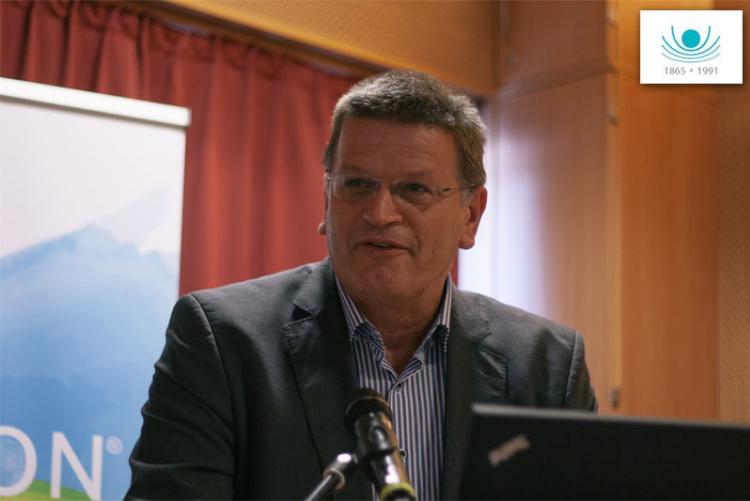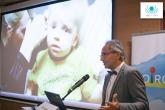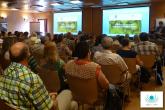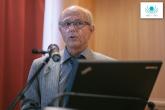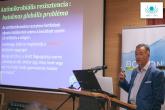Antibiotic sparing possibilities before the post-antibiotic era Friday, 9th September 2016 - Budapest (Hungary)
Antibiotics: Partner or Potential Enemy?
More than 120 participants were interested on antimicrobial resistance problem on a whole-day forum in Budapest, Hungary, at the beginning of September. Most of them represented clinicians from various departments (hospitals, primary care), some researchers and cc. 40 homeopathic doctors gathered to get the latest informations on an issue which excites the health care professionals all over the world.
The Forum was organized by two bodies: the Alliance of the Hungarian Medical Societies and Associations (MOTESZ) and the Hungarian Homeopathic Medical Association (MHOE), the main sponsor was Boiron.
MHOE initiated this interdisciplinary conference in order to highlight the role of homeopathy (and CAM modalities) on an area where conventional medicine faces increasing difficulties. Prominent experts, well-known opinion leaders shared their knowledge, doubts and recommendations concerning antimicrobial resistance problem. (Background: in Hungary only medical doctors are allowed to practice homeopathy, but homeopathy doesn’t get financial or professional support from the governments.)
In the first half of the forum the etiology and „worsening modalities” of AMR, typical patterns of misuse of antibiotics, diagnostic problems of the clinicians, communication problems in patient-doctor relationship were discussed.
Some remarkable facts (sometimes astonishing for the audience):
- 4 times more antibiotics are used among livestock than in humans.
- It’s not enough to use few antibiotics – it’s important to use them well!
- Some new antibiotics are under development but their price will be dramatically high.
- 90% of respiratory infections are viral.
- Positive serology in itself or asymptomal bacteriuria should not be treated with antimicrobials!
- Quicktests (e.g. CRP) and 24-hour laboratory should be basic requirements in hospitals for distinguishing viral and bacterial infections as early as possible.
- Doctors often interpret the patient’s anxiety as a demand for antibiotics. So communication training for doctors permanently decreased the prescription of antibiotics by 50%!
- Specific probiotics should be prescribed on specific indications only, and mainly those which are resistant to most antibiotics.
In the second half of the meeting homeopathic doctors and fitotherapeutic experts presented scientifical evidences and working solutions from their praxis:
- Homeopathy can be successfully integrated to GP praxis - though needs more time and responsible patient.
- Acut otitis media (AOM) is a challenging condition in pediatric GP praxis. Numerous excellent EBM clinical trials show the convincing efficacy of homeopathy here, which fact should be considered when creating guidelines.
- Veterinary success: homeopathy reduced the use of antibiotics and so the costs in a turkey colony in Hungary which saved the farm from financial collapse!
- Potentials of phytotherapy in the treatment of infections: certain herbal medicines have synergic effects to antibiotics, which helps to reduce their dose, side-effects, moreover, enhances their bioavailability and antibiotic effect.
We had the honour to host Dr. Peter Fisher, clinical and research director of the Royal London Hospital for Integrated Medicine, WHO expert on T&CM. His main message: Integrated medicine – more than just killing microbes. Dr Fisher illustrated his lecture with up-to-date data on efficacy of homeopathy not only in RCTs but also in „real life”, like EPI3 study. He emphasized: time of disease-centered thinking is over - people can be cured by holistic approach. Present strategies are not enough in combatting AMR - healthy microbial flora and optimal immune system (using also special herbs) are inevitable in today medicine. WHO and NHS recommendations were presented:
- integrating effective and safe CAM to conventional health care, and
- performing informative campaigns to people.
Dr. Fisher closed his lecture with a personal message: let’s change thinking and health culture, as Dr. Semmelweis tried it in the 19th century.
We wittnessed an encouraging dialogue between representatives of conventional and CAM representatives during the round-table discussion and the coffee break. The solution must be complex in these challenging times. Communication and antibiotic controll of doctors are of equally important. Results of homeopathic doctors’ praxis are the evidence that antibiotic usage can be reduced while maintaining optimal health of patients on a reasonable cost.
Special thanks to Peter Sal (ECH representative, MHOE Board), MHOE Board and members, Lex Rutten (scientifical contribution from ECH), ECH (background support), MOTESZ and companies Boiron and BioGaia for the organization of the AMR Forum.
_____________
Dr. Edit Katona
MHOE former President, ECH representative
Budapest, September 30th, 2016.

